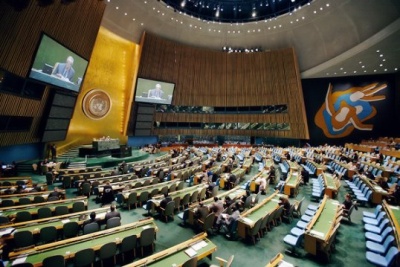The Establishment of the United Nations Peacebuilding Commission
2005
In 2005, the United Nations came to recognise that the short-term efforts and agendas of peacekeeping missions, and their limited mandates and financial resources often underestimated the requirements of building lasting peace and sustainable development in war-torn countries. Indeed, it was calculated that about 50 percent of post-conflict states fall back into conflict within the five years subsequent to successful peace negotiations. The UN acknowledged publicly that it had, in the past, failed to prevent such recurrences and to establish effective and legitimate political institutions in societies recently affected by violent conflicts. In order to rectify the lack of long-term perspective, the UN General Assembly and the Security Council passed Resolutions 60/180 and SC 1645 respectively, in order to create a Peacebuilding Commission (PBC). It is an inter-governmental advisory body whose core purpose is to ?marshal resources and advise on and propose integrated strategies for post-conflict peacebuilding and recovery?. Its aim is to assist countries recently affected by conflicts and help them rebuild inclusive, transparent institutions, infrastructure and a favourable environment for sustainable economic and social development.
